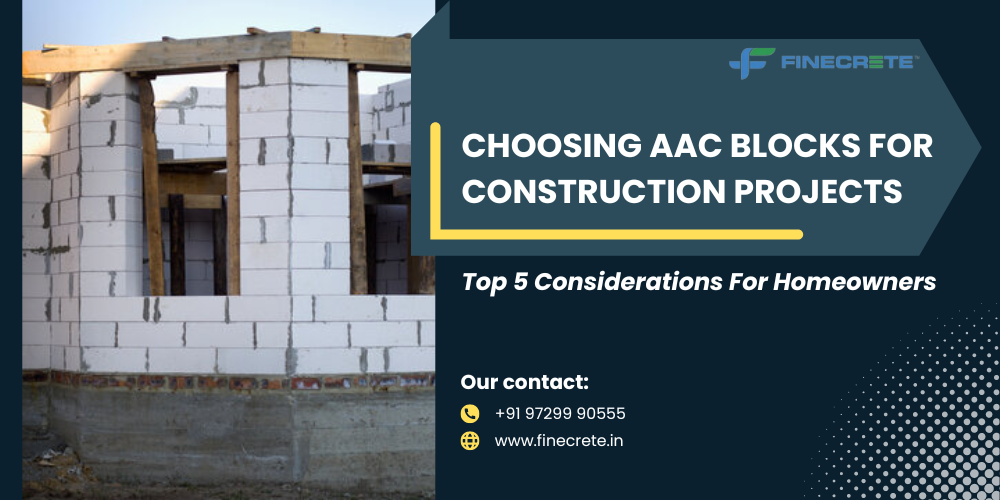Autoclaved Aerated Concrete (AAC) blocks are highly popular as construction materials, renowned for their lightweight nature, thermal efficiency, and eco-friendliness. However, homeowners need to consider several important factors before they decide to use AAC blocks for their construction projects. Here are the top 5 considerations for homeowners before opting for AAC blocks.
- Structural Integrity and Load-Bearing Capacity:
AAC blocks are lighter than traditional concrete blocks. However, they are still strong and can support substantial loads. As a homeowner, you should consult with a structural engineer to ensure that AAC blocks are suitable for your specific construction requirements.
This is particularly true if you plan to build multi-story structures. A qualified engineer can assess the design and recommend appropriate block sizes and reinforcement techniques, to ensure safety and durability.
- Thermal Insulation Properties:
AAC blocks are renowned for their excellent thermal insulation properties. These can help maintain comfortable indoor temperatures, reducing the reliance on heating and cooling systems. You have to assess your local climate and consider the thermal efficiency of AAC blocks concerning your energy-saving requirements.
You also need to understand how AAC blocks score high when compared to other insulation materials. It can help you to make informed decisions about overall energy efficiency and comfort in your home.
- Moisture Resistance and Durability:
While AAC blocks are generally resistant to moisture, you need to consider your local climate and potential exposure to water. If you live in an area that is prone to heavy rainfall or flooding, you may need additional waterproofing measures to protect the blocks from moisture intrusion.
You should also ensure proper sealing of your building with a waterproof paint coating, which can improve the longevity and performance of the blocks.
- Cost Considerations and Budgeting:
Cost is a critical factor in any construction project. At the outset, AAC blocks can be more expensive than traditional materials. Their energy efficiency and reduced labor costs during installation may lead to long-term savings.
As a homeowner, you should conduct a thorough cost analysis. Consider not only the price of the blocks but also potential savings on energy bills, maintenance, and labor. You need to obtain quotes from multiple suppliers and contractors. Make sure that your investment does not go past the overall budget for your construction project.
- Environmental Impact and Sustainability:
If you are an eco-conscious homeowner, consider how sustainable your building materials are. AAC blocks are composed of natural raw materials, including sand, lime, cement, and water. During the production process, these consume a relatively low amount of energy as compared to traditional concrete.
Further, AAC blocks are recyclable and can help you to reduce wastage. Assess the environmental impact of AAC blocks in your construction projects. You can minimize emissions during transportation when you source materials from local suppliers.
For residential building construction projects, you need to choose the right building materials. There are plenty of advantages to using Autoclaved Aerated Concrete blocks. You need to consider the aforementioned factors with care and consult with professionals to ensure that AAC blocks are a suitable choice for your specific construction needs. Get in touch with a leading manufacturer of AAC blocks like Finecrete for sourcing the best supplies..






